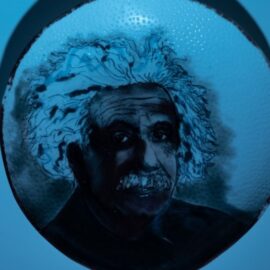

This article is an excerpt from the Shortform book guide to "Super Human" by Dave Asprey. Shortform has the world's best summaries and analyses of books you should be reading.
Like this article? Sign up for a free trial here.
How do free radicals lead to inflammation in the body? What dietary change can make a difference?
Mitochondria manage cellular health and functionality through a number of processes. One process is extracting energy from your body’s metabolic processes to power your cells. In this process, free radicals are created. Unchecked, they damage cells and cause inflammation.
Continue reading to learn more about the relationship between free radicals and inflammation.
Free Radicals and Inflammation
In Super Human, Dave Asprey explains the connection between free radicals and inflammation. First, we have to understand how free radicals are created and what kind of damage they do.
When extracting energy from your body’s metabolic processes, mitochondria—tiny organelles that live within your cells—create two types of molecules: free radicals and antioxidants. Free radicals initiate a chemical reaction (oxidation) that damages the structure of your cells. Antioxidants inhibit the damaging effects of free radicals and keep your cells in good health.
When your mitochondria function efficiently, they create sufficient antioxidants to counteract the damaging effects of free radicals and keep your cells in prime condition. On the other hand, inefficient mitochondria are unable to produce enough antioxidants to defend your cells against free radicals—resulting in cellular damage.
Asprey explains that, when excess free radicals damage your cells, they inhibit a key mitochondrial process—removing dysfunctional cells from your body. These dysfunctional cells linger in your system, secreting inflammatory proteins that accumulate in your body and cause chronic inflammation.
According to Asprey, chronic inflammation makes you more susceptible to diseases such as diabetes, Alzheimer’s, and heart disease. This is because it creates hormonal imbalances that weaken your immune system, raise your blood sugar levels, slow your cognition, and lead to an increase in fat around your organs. Each of these effects contributes to a vicious cycle that causes further cellular damage:
- Insufficient antioxidant production results in an excess of free radicals that damage cells and create inflammation.
- This inflammation damages more cells, overloads mitochondria with even more dysfunctional cells to process, and creates more inflammatory proteins in the body.
- Because cellular damage and inflammation inhibit mitochondria from working efficiently, they cause mitochondria to produce fewer antioxidants and more free radicals—which results in even more cellular damage and inflammation.
Free Radicals, Inflammation, & Food
One cause of mitochondrial inefficiency is consuming inflammatory foods. Asprey explains that the food you eat directly impacts the amount of inflammation in your body. Inflammation damages cells and overloads your mitochondria, resulting in fewer antioxidants and more free radicals in your body.
One dietary change you can make to reduce inflammation is to consume antioxidant-rich foods. This will support your mitochondria in reducing the number of free radicals and damaged cells in your body. According to Asprey, good sources of antioxidants include coffee, tea, berries, herbs, spices, and dark chocolate. Additionally, he suggests that you can eliminate excess free radicals from your body by taking antioxidant supplements such as pyrroloquinoline quinone or the Chinese herb he shou wu.

———End of Preview———
Like what you just read? Read the rest of the world's best book summary and analysis of Dave Asprey's "Super Human" at Shortform.
Here's what you'll find in our full Super Human summary:
- How to grow older without the negative side effects
- A look into the advancements of anti-aging science
- Why a healthy future starts with making changes now






